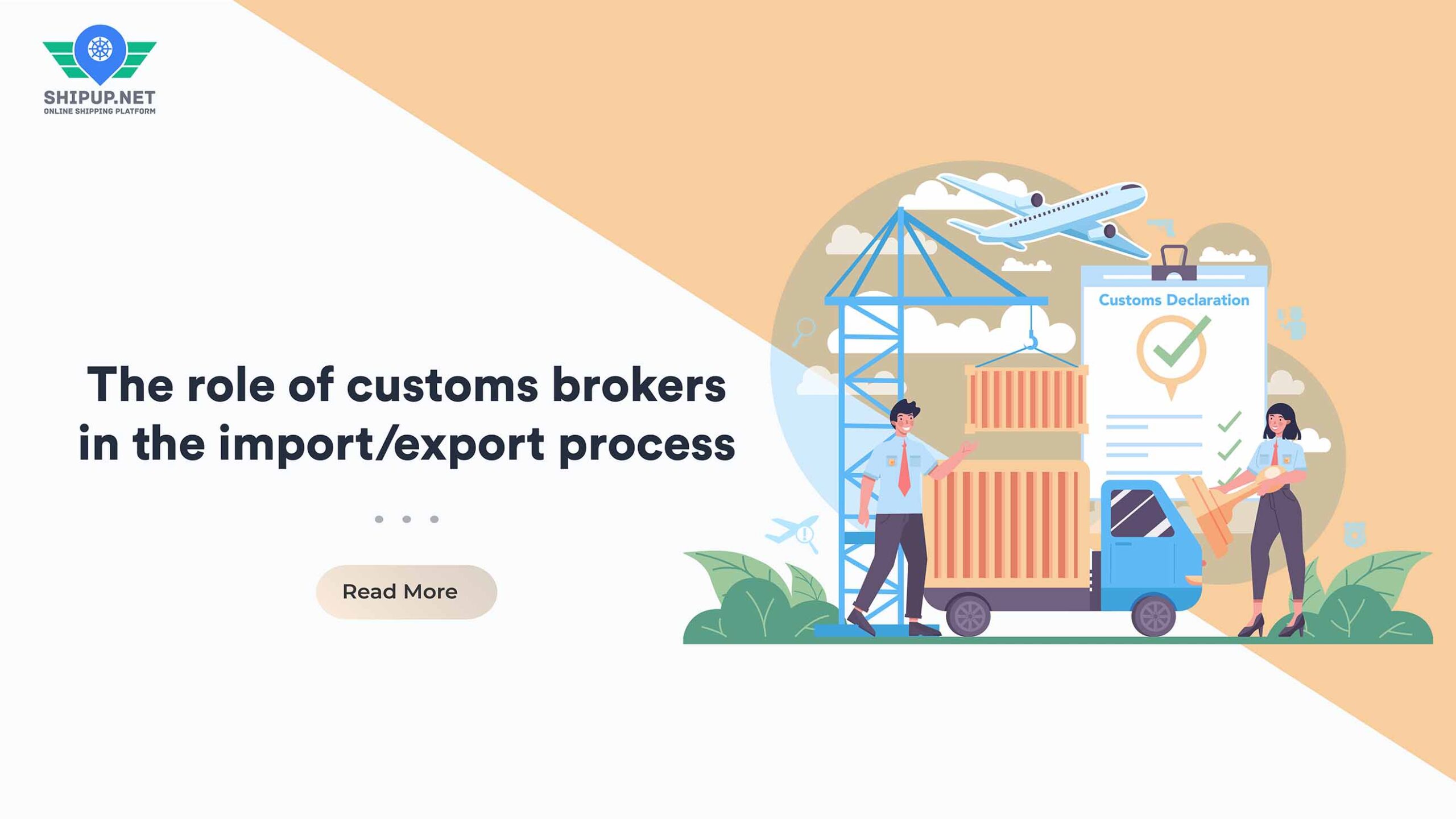The world of international shipping is a very complex and ever-changing landscape, with thousands of shipments crossing borders every day. Just imagine how many people are working in different corners of the work aiming one thing: Smooth logistics. We at Visiwise can see that behind the scenes, there are different groups of experts and service providers, like the network of customs brokerage companies, that work tirelessly to ensure the smooth flow of goods from one country to another.
These companies play a meaningful role in the transactional process of exporting and importing goods. Navigating the various rules and regulations surrounding the import and export of goods can be a big pain for those who don’t have enough expertise and information. Every country has its own unique set of laws and requirements, and this alone can make the process significantly more complex. This is where customs brokers come in. They are experts in navigating the complicated world of international trade, and they work closely with their clients to ensure that all necessary documentation is in order and that the shipment meets all the necessary requirements.
The role of the customs broker is vital in ensuring that the transactional process of exporting goods runs smoothly. They act as a liaison between the exporter and the relevant authorities, ensuring that all necessary paperwork is completed correctly and that all regulations are followed. By working closely with their clients, customs brokers can help to ensure that shipments arrive at their destination on time and without any issues. So the next time you’re waiting for a shipment to arrive from another country, remember that there are dedicated professionals working tirelessly behind the scenes to ensure that it gets to you safely and efficiently.
What Are the Custom Broker’s Tasks?
The role of a customs broker is a critical one in the world of international trade. Their main responsibility is to manage export transactions on behalf of their clients, which can include companies, importers, exporters, or wholesalers. This involves overseeing the release of shipments of goods and ensuring that all necessary information is provided to the client.
One of the key tasks of a customs broker is to coordinate the various steps involved in the entry or exit of goods across international borders. This includes managing customs and commercial documents, as well as ensuring that all relevant regulations are followed in each country. The customs broker also plays a crucial role in managing all aspects of customs duties applicable to exported goods, which can be complex and varied depending on the country of origin and destination.
In addition to managing the export process, a customs broker also serves as a liaison between the various agencies and officials involved in the shipping process. This requires strong communication skills and the ability to navigate complex regulations and procedures. By simplifying the shipment of goods to a foreign country, the customs broker can help their clients to save time and money while ensuring that their goods arrive safely and on time. Overall, the role of the customs broker is a vital one in the world of international trade and plays a crucial role in facilitating the movement of goods across borders.
Benefits of Hiring a Customs Broker
Hiring a customs broker can be an excellent decision for businesses involved in international trade. These professionals are experts in navigating the complex web of regulations and requirements involved in importing and exporting goods and can provide a range of benefits that can help streamline the process and save time and money.
One of the key benefits of hiring a customs broker is their ability to manage risks and obstacles efficiently. Importing products can be a complicated process, and there are many potential pitfalls that can lead to costly delays or even legal issues. Customs brokers are trained to anticipate these problems and provide advice and guidance to help their clients navigate the process as smoothly as possible.
Another benefit of hiring a customs broker is the time and cost savings they can provide. The process of importing goods can be time-consuming and labor-intensive, with many forms and documents that need to be completed and submitted. By outsourcing these tasks to a customs broker, businesses can free up valuable time and resources to focus on other aspects of their operations.
Finally, customs brokers can also be cost-effective, helping businesses to minimize fees and reduce expenses associated with importing goods. By leveraging their expertise and knowledge of the regulations and procedures involved in international trade, customs brokers can help their clients to identify opportunities for cost savings and ensure that they are taking advantage of all available options.
Customs Brokers: The Key to Efficient and Accurate Customs Procedures
The services offered by customs brokers are indispensable to importers who need to navigate the complex landscape of international trade. With a multitude of regulations and procedures to adhere to, it is difficult for an importer to be fully informed about all the formalities required to import goods into a country. This is where customs brokers come in, offering a range of services such as customs valuation, tariff classification, and customs clearance to ensure that shipments are processed efficiently and accurately.
One of the key advantages of working with a customs broker is their expertise in navigating the intricacies of international trade. They are familiar with the rules and regulations governing the import and export of goods in different countries and can offer guidance on the most cost-effective procedures for completing customs formalities. In critical situations, they can also offer advice and help resolve issues that arise during the importation process.
Customs brokers can also save importers time and money. The procedures involved in importing goods can be time-consuming and costly, but customs brokers are proficient in completing these tasks quickly and efficiently. By outsourcing these tasks, importers can focus on other aspects of their business, confident that their customs compliance is being handled by a professional.
In today’s digital age, customs brokers use specialized software and databases to maintain accurate records of all the data required for customs clearance. This allows for rapid access to information and ensures that any changes in tariffs or regulations are reflected in the system. Electronic linking with customs systems further streamlines the process and enables speedy clearance of shipments. By utilizing the services of a customs broker, importers can be sure that their shipments will be processed accurately, efficiently, and in compliance with all relevant regulations
Customs Brokers in the Import/Export Process
The import/export process involves a myriad of procedures, rules, and regulations, which vary depending on the countries involved. To navigate these complexities, many businesses rely on customs brokers to handle their import/export transactions. Customs brokers act as intermediaries between importers and exporters and the government agencies responsible for regulating international trade, including customs authorities and other agencies that oversee import/export compliance.
One of the primary responsibilities of customs brokers is to manage the release of shipments of goods for their clients. This involves ensuring that all necessary documentation is provided to the appropriate authorities and that all applicable regulations are followed. Customs brokers must also manage the steps involved in the entry or exit of goods and oversee the regulations and customs duties applicable to exported goods.
In addition to their transactional responsibilities, customs brokers also serve as interpreters, working with agencies and officials during the shipping process to ensure that all procedures are appropriate and respected. This includes managing communication between various stakeholders involved in the import/export process, including shippers, carriers, and government agencies. Ultimately, customs brokers play a critical role in simplifying the shipment of goods to foreign countries and ensuring compliance with regulations and customs procedures.
Hiring a customs broker can offer many benefits to importers and exporters, including managing risks and obstacles efficiently, saving time, and reducing costs. With their specialized knowledge of tariff classification, rates of duties and taxes, and the origin of goods, customs brokers can help businesses develop appropriate systems and procedures for reporting trade data. Furthermore, many customs brokers maintain databases with up-to-date information, enabling rapid access to accurate information and ensuring compliance with changing regulations.


